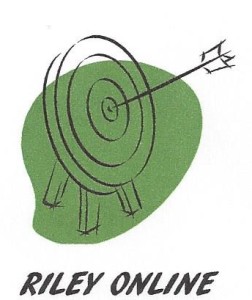 A meme showed up in my personal Facebook feed last week that asked people to name something they learned in high school but have never used.
A meme showed up in my personal Facebook feed last week that asked people to name something they learned in high school but have never used.
It was one of those memes that originates in a distant, unknown place and is shared so widely that I know very few of the people who comment. I don’t usually read many of the comments, but as I quickly scrolled down the first few, I read comments about trigonometry and history and Latin.
I spent 20 minutes searching the crannies of my brain for something I learned in school that I haven’t used and I came up empty.
There’s nothing I haven’t used in one way or another, and I took Latin.
Latin, the supposedly dead language, is alive in many of our words and phrases. Annual, campus, centennial, magistrate, pessimist, sinister and vital all come from Latin words. An “ad hoc” committee serves for one purpose, “for this” in Latin.
It was Magistra (teacher) Kaufman who taught me to spell “receive” correctly. Our daily homework assignments were worth five points each. After a few misspellings of “receive,” she started taking five points off my score every time I spelled the word wrong. I learned.
In Latin class I learned how to work in a rigid structure. Latin grammar is very specific. The subject of a sentence is always at the beginning and the verb is always at the end. Each clause has only one correct place in the sentence. We had to follow all the rules to write correct Latin sentences.
I took trigonometry in high school. It baffled me. I followed the steps, used the formulas, came up with right answers and passed the class. I took biology and chemistry, not subjects a person who intends to be a high school band director (that was my career goal) needs to know.
I took the “smart kids” government seminar class and read “The Federalist Papers” and “Miracle at Philadelphia.” I had to think a lot harder than my classmates in other classes who learned about the Constitution by hand writing it.
I’ve used bits of knowledge from all those classes in my adult life. I’m not a wildlife biologist or a research chemist, but I understand the factors working against our long-term existence on this planet. I understand explanations of greenhouse gasses and global warming and Gulf hypoxia and the basic process of making ethanol.
I’m not a politician, but I understand the importance of being part of the electoral process. I understand why it’s legal for Neo Nazis to hold rallies and why racists are allowed to say horrid things. I know a balance of power between the executive, legislative and judicial branches is critical to the health of our democracy.
What I learned taking those academic classes in high school is how to think, how to follow rules (directions) for best results, how to analyze information from many sources, how to read difficult material, and how to extract meaning.
Those are really, really important skills.
A rigorous academic program is something we don’t hear or read about these days. The focus now is career training. Our governor and our local board of education are working hard promoting vocational training. It’s what’s going to move Iowa into the future, we’re told. We’re told many students don’t need academics as much as they need to learn a skill that will translate into a living wage after graduation.
Don’t all students need to learn to think and analyze information beyond the ninth-grade level? Isn’t it in our best interests to be sure students continue to learn to reason and determine if the information they’ve been given is credible?
That’s what students learn in academic classes.
I support vocational training. I support making it available here in Greene County. I worry, though, that educators and school boards have put academics on the so-called back burner, and then turned the heat down to “barely warm.”
Where will we be 20 or 30 years from now when we haven’t taught students to think, and to think hard? ~Victoria Riley, publisher
